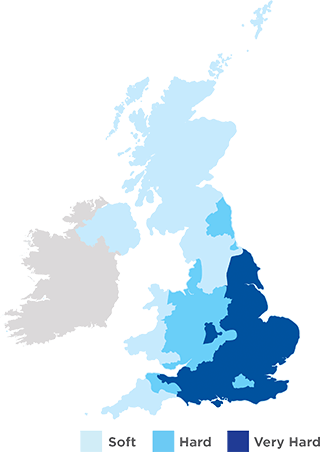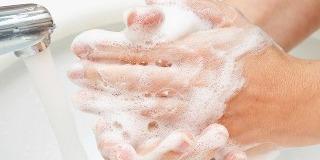Water Hardness
While our water is treated to some of the highest standards in the world, the natural state of regional water can still cause some problems for householders. Once rainwater comes in contact with the ground, it will either remain soft or reach a certain level of ‘hardness’, depending on the region. The harder your water supply, the more limescale it will deposit around your home and the more problems you’ll need to deal with. Here’s everything you need to know about hard and soft water, including one simple, long-term solution to your limescale trouble.
13 million households in the UK suffer from the effects of limescale simply because their homes are being served with a hard water supply. This is something that is typically determined by the geology of the region you’re living in as certain types of rock can alter the water you get.
When rainwater falls, it’s naturally soft – it’s only when it comes in contact with the ground that its state can change. Passing through soft rocks, like limestone and chalk, causes rainwater to collect calcium and magnesium minerals. The presence of these compounds mean the water is now ‘hard’ and when heated, those minerals will combine to form limescale.
Unfortunately, with the development of wider water networks in the UK, some regions that were originally soft water areas are now receiving hard water to their homes.

Check the water where you live
Find your local dealer
Water hardness is measured by the number of mineral deposits in your water (parts per million – ppm). A soft water area would have under 60ppm while a very hard water area would register more than 180ppm.
If you want to know exactly how hard the water in your home is, put in your postcode to our postcode hardness finder (above) or book a free home survey with your local Authorised Kinetico Dealer.
Did you know can adjust your dishwasher setting?
Using dishwasher salt softens hard water, reducing the presence of the calcium and magnesium minerals that cause limescale to build up in your appliance.
Once you figure out how hard the water in your area is, you can adjust your dishwasher salt settings to ensure you’re using enough. The harder the water, the higher the level of salt you’ll need.
Of course, a simpler solution to prolong the life of your dishwasher, as well as all other appliances in your home, is to install a water softener. This ensures hard water is softened as it enters your home, preventing limescale from causing damage to your heating system, washing machine and kettle, as well as reducing your cleaning time. No additional dishwasher salt required!

Discover the many benefits of a water softener for you, your home and your wallet.
Learn more
To find your perfect water softener, take a look at our range today.
See the range >
A water softener or filtration system can offer homeowners peace of mind, but what do they actually do?
Find out more



